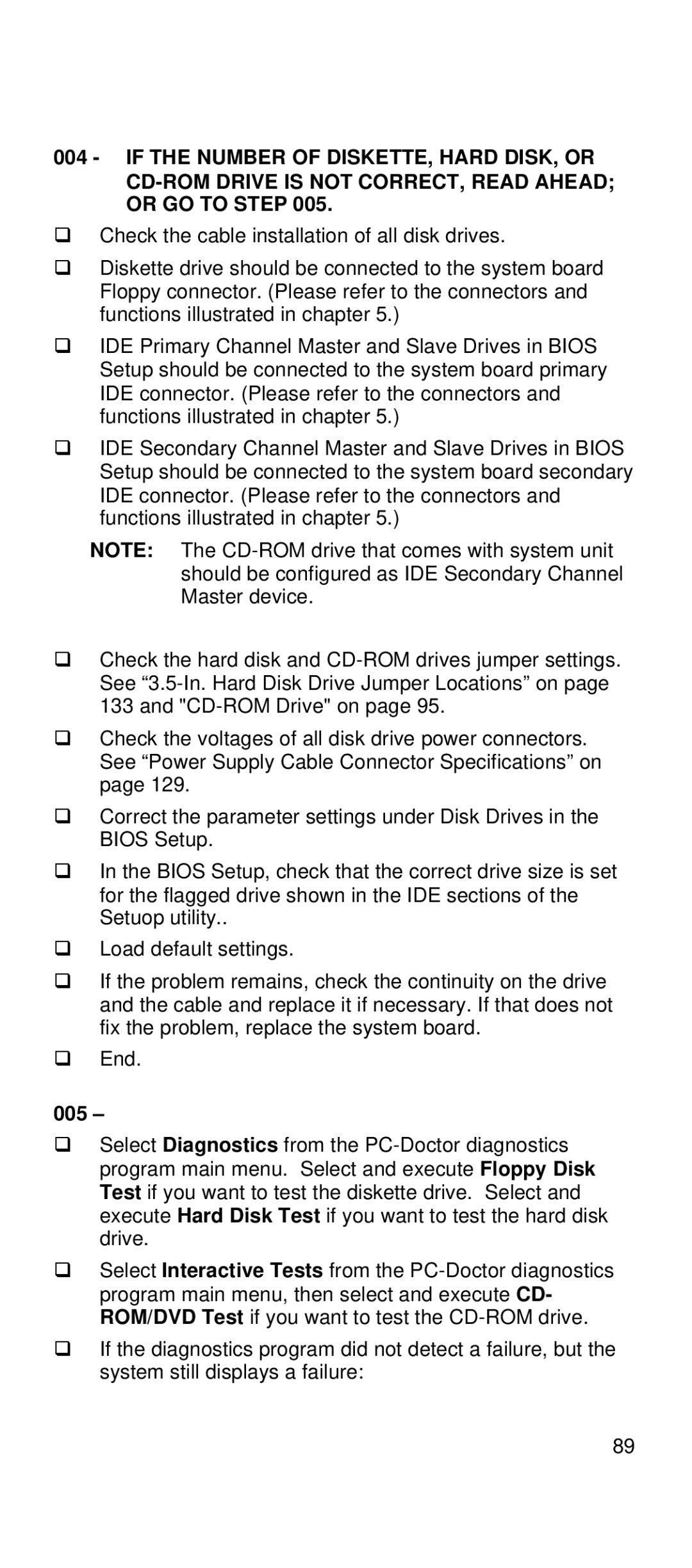004 - IF THE NUMBER OF DISKETTE, HARD DISK, OR
qCheck the cable installation of all disk drives.
qDiskette drive should be connected to the system board Floppy connector. (Please refer to the connectors and functions illustrated in chapter 5.)
qIDE Primary Channel Master and Slave Drives in BIOS Setup should be connected to the system board primary IDE connector. (Please refer to the connectors and functions illustrated in chapter 5.)
qIDE Secondary Channel Master and Slave Drives in BIOS Setup should be connected to the system board secondary IDE connector. (Please refer to the connectors and functions illustrated in chapter 5.)
NOTE: The
qCheck the hard disk and
qCheck the voltages of all disk drive power connectors. See “Power Supply Cable Connector Specifications” on page 129.
qCorrect the parameter settings under Disk Drives in the BIOS Setup.
qIn the BIOS Setup, check that the correct drive size is set for the flagged drive shown in the IDE sections of the Setuop utility..
qLoad default settings.
qIf the problem remains, check the continuity on the drive and the cable and replace it if necessary. If that does not fix the problem, replace the system board.
qEnd.
005 –
qSelect Diagnostics from the
qSelect Interactive Tests from the
qIf the diagnostics program did not detect a failure, but the system still displays a failure:
89
